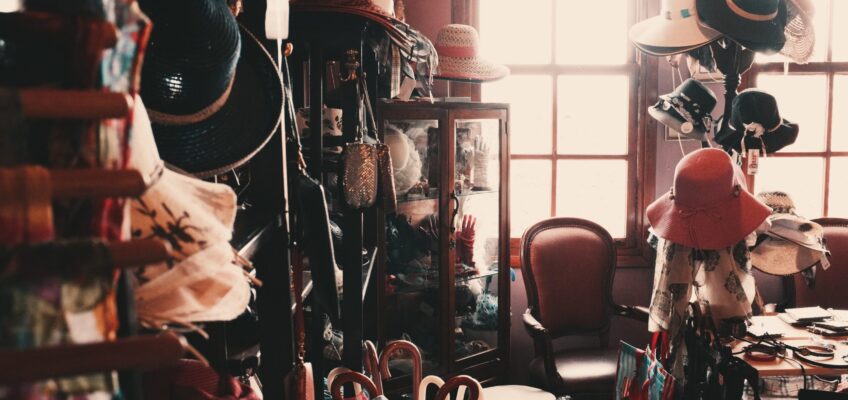How does one not see their clutter? There are piles all around the house, but one walks right past them, oblivious to the mess. How does this happen?
We have a tendency to visually tune out things we see every day. The physiology behind this is called adaptation, whereby our brains cancel out the constants in our lives and “adapt” to what is there and don’t notice them. Dictionary.com’s definition of adaptation is: “the decrease in response of sensory receptor organs, as those of vision, touch, temperature, olfaction, audition, and pain, to changed, constantly applied, environmental conditions.”
Here’s an example that everyone can relate to: if we put a post-it reminder note on the bathroom mirror, the first day it reminds us. But if the paper stays there, it becomes a constant, and we tune it out. This is what happens with clutter. You become desensitized to the environmental condition of clutter.
You attend a conference and come home with a tote page of brochures, handouts, and promo items that were very relevant to you during the conference. You come home with great intentions to follow-up on these materials. You set the tote bag down next to your desk. After a few weeks, you don’t notice it anymore. At this point, when you don’t take the materials out of the tote bag, and the bag stays there for months, it now has become clutter. A house or office gets filled up with stuff, and soon the person doesn’t see the stuff at all.
How do you know you have reached or not reached this point of adaptation to clutter? One way is to ask a friend to come over and give their opinion about your home or office clutter status. Another way is to tune in to how your body’s or mind’s physical reaction signals you. If you start feeling anxious, stressed, overwhelmed, hopeless, helpless, embarrassed to have family, friends, or clients come over, and there is no medical reason for this, then you have reached the point of needing organizing even though you don’t visually see the clutter.
You definitely want to be mindful of adaptation and whether or not you need to organize. I have had people tell me that when they went to a CPA’s or an Attorney’s office, and it was cluttered and the desk was piled high with files and papers, they did not return because they were concerned the CPA or Attorney would lose their papers or get them mixed up with another client. While the CPA or Attorney didn’t see the clutter, the potential client did, and they “judged them by the cover”, those first impressions regardless of the intelligence or competence of the professional.
Don’t lose clients…get organized instead.

